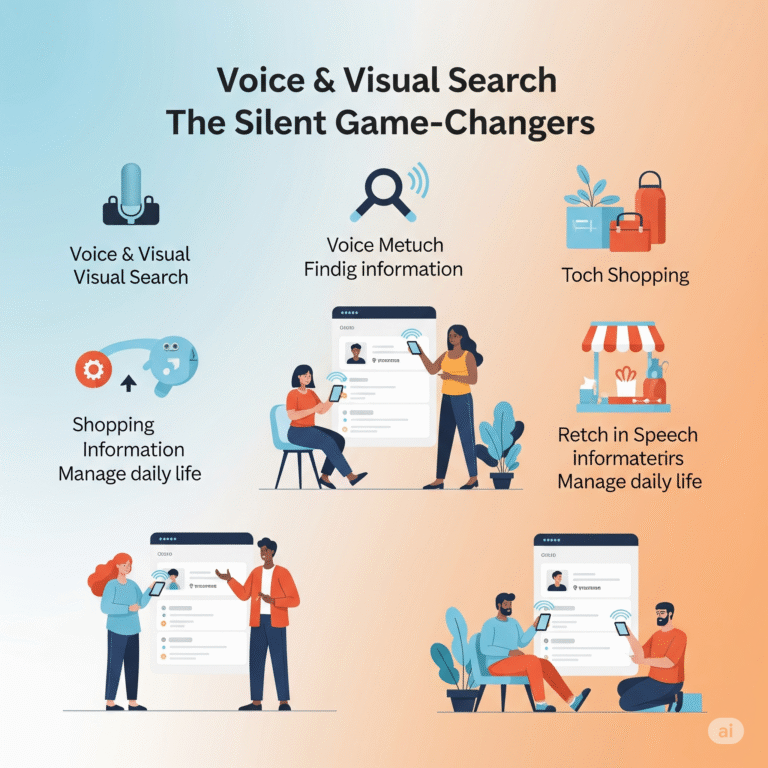Let’s be real—digital marketing in 2025 isn’t just about posting ads and hoping for the best.
Gone are the days of spray-and-pray strategies. Today, it’s about precision, personalization, and AI-powered finesse. If your brand isn’t leveraging the latest techniques, you’re not just falling behind—you’re becoming invisible.
So, what’s working right now? And how can you future-proof your strategy?
Buckle up. We’re diving into the most powerful digital marketing techniques of 2025—no fluff, just actionable insights with a human touch.
Personalization in 2025 isn’t just about inserting a customer’s name in an email. It’s about anticipating needs before they even arise.
How It Works:
AI-driven dynamic content: Websites and ads auto-adjust based on user behavior (e.g., showing winter coats to a shopper in Chicago during a snowstorm)
Predictive analytics: AI analyzes past purchases, browsing habits, and even social media activity to recommend products (think Netflix, but for e-commerce)
Chatbots with emotional IQ: AI assistants detect frustration or excitement in customer messages and respond accordingly—no more robotic replies.
Why It Matters:
Pro Tip: Start small. Use tools like HubSpot or Marketo to segment audiences and test dynamic email campaigns before scaling.

Forget typing—your customers are talking and snapping their way to purchases.
Voice Search Optimization:
Conversational keywords: Optimize for phrases like “Where’s the nearest vegan pizza place?” instead of “vegan pizza near me”
FAQ-style content: Structure blogs to answer natural-language questions (Google’s AI Overviews love this).
Visual Search Revolution:
Google Lens & Pinterest Lens: 10+ billion monthly visual queries mean your product images must be high-res and tagged properly.
AR try-ons: Brands like Sephora and IKEA let users “test” products in their space via smartphone—boosting conversions by 40%.
Why It Matters:
Pro Tip: Add schema markup to product pages so AI can “read” your images for voice/visual search.
Social media isn’t just for memes anymore—it’s a trillion-dollar shopping mall
Winning Tactics:
Shoppable livestreams: TikTok and Instagram Live sales create FOMO (e.g., a beauty brand selling out in minutes during a demo).
In-app checkout: 55% of shoppers prefer buying without leaving Instagram/Facebook .
Micro-influencer collabs: Nano-influencers (10K–50K followers) drive 3x higher engagement than celebs.
Why It Matters:
Social commerce will hit $1.2 trillion by 2025.
Dunkin’ saw a 57% app spike after a TikTok influencer campaign.
Pro Tip: Test UGC (user-generated content) campaigns. Example: Aerie’s #AerieReal boosted sales by 20% using unfiltered customer photos.
Google’s AI Overviews mean 60% of searches now end without a click . So how do you win?
AEO Strategies:
Create “unsummarizable” content: Think interactive tools, comparison guides, and data visualizations (AI can’t easily replicate these).
Target mid-funnel queries: Focus on “best X for Y” instead of “what is X” (e.g., “best CRM for small businesses”).
Dominate Google’s AI snippets: Use bullet points, tables, and concise answers (e.g., “3 key benefits of…”).
Why It Matters:
80% of searches trigger AI Overviews, stealing clicks from websites.
Brands optimizing for AEO see 2x more organic visibility.
Pro Tip: Repurpose old blogs into listicles and Q&A formats—AI loves structured data.
The line between online and offline is vanishing. Meet “phygital” marketing:
Trending Tactics:
QR codes in stores: Scan for AR demos or exclusive discounts (Walmart saw 30% more engagement).
Virtual pop-up shops: Gucci’s Roblox store made $10M in digital sneakers.
NFT loyalty programs: Starbucks’ Odyssey rewards fans with collectibles for purchases.
Why It Matters:
65% of consumers prefer brands offering mixed-reality experiences.
Nike’s AR sneaker try-ons reduced returns by 25%.
Pro Tip: Start with Instagram AR filters—no coding needed!
Consumers in 2025 sniff out greenwashing and data abuse instantly.
How to Adapt:
Radical transparency: Show supply chains (e.g., Everlane’s “Know Your Factories”).
First-party data focus: Ditch third-party cookies—use quizzes and surveys to collect consent-based data.
Sustainability storytelling: Patagonia’s “Don’t Buy This Jacket” campaign increased sales by 30%.
Why It Matters:
93% of consumers want sustainable lifestyles, and they’ll pay more for it.
90% of shoppers distrust AI-generated ads—human-created content wins.
Pro Tip: Audit your messaging. Replace “eco-friendly” with specifics (e.g., “100% recycled packaging”).
2025’s digital marketing isn’t about chasing every trend—it’s about mastering the ones that align with your audience.
Your Action Plan:
The future belongs to brands that blend innovation with empathy. So—which technique will you try first?
Let's Chat...